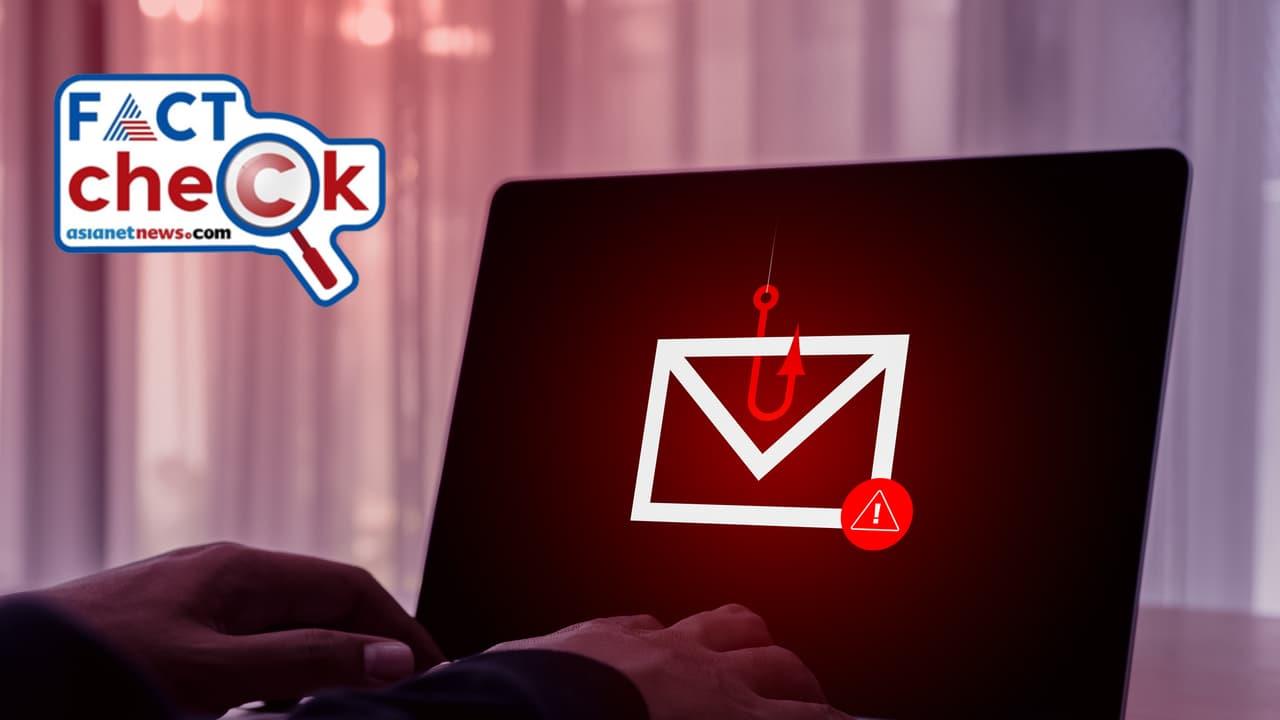
Fact Check: No Email Sent For E-PAN Card Download, PIB Warns Citizens
Bengaluru: The Press Information Bureau (PIB) has cautioned citizens against a fake email circulating in the name of e-PAN card download, clarifying that no such communication has been issued by official authorities.“Do not respond to any emails, links, calls & SMS asking you to share financial & sensitive information,” a post read. According to the Income Tax Department, detailed personal information will not be asked through email. Citizens have also been advised to note that the department never sends emails asking for PIN numbers, passwords, or similar access details related to credit cards, banks, or other financial accounts. To help taxpayers stay vigilant, the Income Tax Department has issued guidelines to identify and avoid such fraudulent messages.
📢Have you also received an email asking you to download e-PAN Card❓#PIBFactCheck⚠️This Email is #Fake✅Do not respond to any emails, links, calls & SMS asking you to share financial & sensitive information➡️Details on reporting phishing E-mails: twitter/M1Onqor36w
- PIB Fact Check (@PIBFactCheck) August 31, 2025
What is Phishing?
Phishing is a fraudulent practice where malicious actors send fake emails, often disguised as official communication, to steal sensitive information. If you receive an email claiming to be from the Income Tax Department or directing you to a website that appears similar, do not reply to the message. Never open attachments, as they may contain harmful code that can infect your computer. Avoid clicking on any links or entering confidential details such as bank account or credit card information. Even copying and pasting suspicious links into your browser is unsafe, as phishing links are often disguised to look authentic while redirecting users to malicious websites. To protect yourself, always use updated antivirus software, antispyware, and a firewall. Many phishing emails carry hidden software that can track your online activity or compromise your system without your knowledge. Security tools can help safeguard against such threats.
In case you receive a suspicious email or come across a website impersonating the Income Tax Department, report it immediately. Forward the email or website URL to ... , with a copy also sent to ... . You may forward the message as received or include the full internet header, which helps trace the sender. Once reported, delete the email from your inbox. If you encounter phishing emails unrelated to the Income Tax Department, these should also be forwarded to ... for further action.
Legal Disclaimer:
MENAFN provides the
information “as is” without warranty of any kind. We do not accept
any responsibility or liability for the accuracy, content, images,
videos, licenses, completeness, legality, or reliability of the information
contained in this article. If you have any complaints or copyright
issues related to this article, kindly contact the provider above.


















Comments
No comment